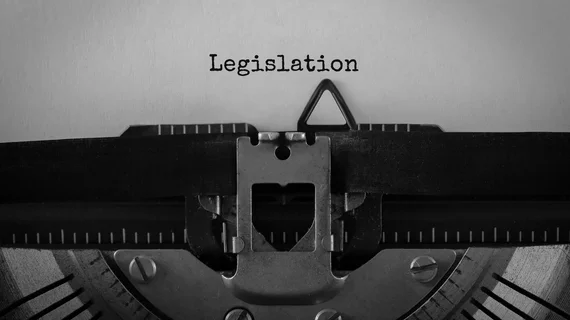CHICAGO—Is granting patients immediate access to their medical images a worthwhile practice? Experts debated both sides during a panel discussion Monday as RSNA 2023.
Three physicians, each with differing perspectives on the regulation, spoke during the session, titled: “21st Century Cures Act Information Blocking Provision: Friend or Foe?” The regulation requires healthcare organizations to provide patients with access to their medical information, typically through an online portal.
As a setup for the conversation, all participants agreed the rule caught healthcare organizations off guard, until the compliance phase was implemented in 2021. All three speakers also agreed the 21st Century Cures Act has positive aspects that benefit patients. However, the requirement that healthcare organizations share all medical data—including test results—without delay is a source of consternation for Jonathan Mezrich, MD, with the Yale School of Medicine.
“Medical records, including radiology reports, are available to patients through electronic portals immediately upon release. It used to be that institutions would do what we call ‘embargoes’—basically they would sit on the reports and give the treating primary care physician, or emergency physician, time to talk to the patient,” he said, adding that the value of the delay is ensuring patients receive important medical diagnoses from a doctor first.
Mezrich, who also is an attorney, argued that the immediate sharing of medical information could be doing more harm than good, putting patients in a role where they’re reading radiology reports and test results without having the appropriate contextual knowledge. This could lead to patients advocating for care plans that ultimately aren’t beneficial to their health.
Arun Krishnaraj, MD, from the University of Virginia, supports the medical record-sharing provision, but admits there are problems with its implementation, especially with inconsistent guidance from regulators. When asked by a member of the audience if immediately sharing test results leads to patients “freaking out,” Krishnaraj countered that more education is needed.
“There needs to be a push for shared decision-making, and part of that process is going to be patients understanding what’s going on in their imaging reports,” he said. “As radiologists … we know how critically important those report findings and interpretations are to different patient care pathways, and if we turn a blind eye and say ‘this is too challenging’ or ‘this could cause harm,’ we don’t progress the patient-doctor relationship to the level we need to.”
When it was suggested that patients be given reports equipped with a glossary or web links that offer more information, CT Lin, MD, from the University of Colorado School of Medicine, said he had a “mixed opinion,” citing his research on medical record sharing that showed patients fear not having all of the information, especially as they navigate the healthcare system seeking multiple specialists or second opinions.
“[Patients tell me] ‘the most important thing for me is continuity, I have the actual document, I can give it to whoever I want’—that was really important to them,” Lin said.
All three panelists agreed there are problems with patients receiving test results in a timely manner and that doctor’s often sit on test results longer than they have to. The Cures Act solves that problem by requiring the immediate release of information—perhaps too much—but hefty fines put healthcare organizations in a position where they’d rather release everything immediately to avoid a penalty.
The panelists seemed to agree a law that protects patient rights, ensures transparency and doesn’t burden provider organizations is possible to achieve, perhaps with a different piece of legislation or more clarity from regulators.

